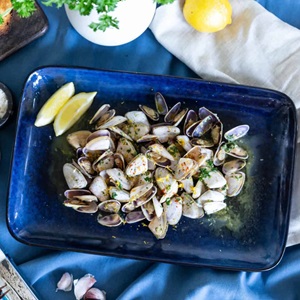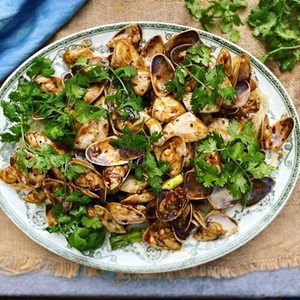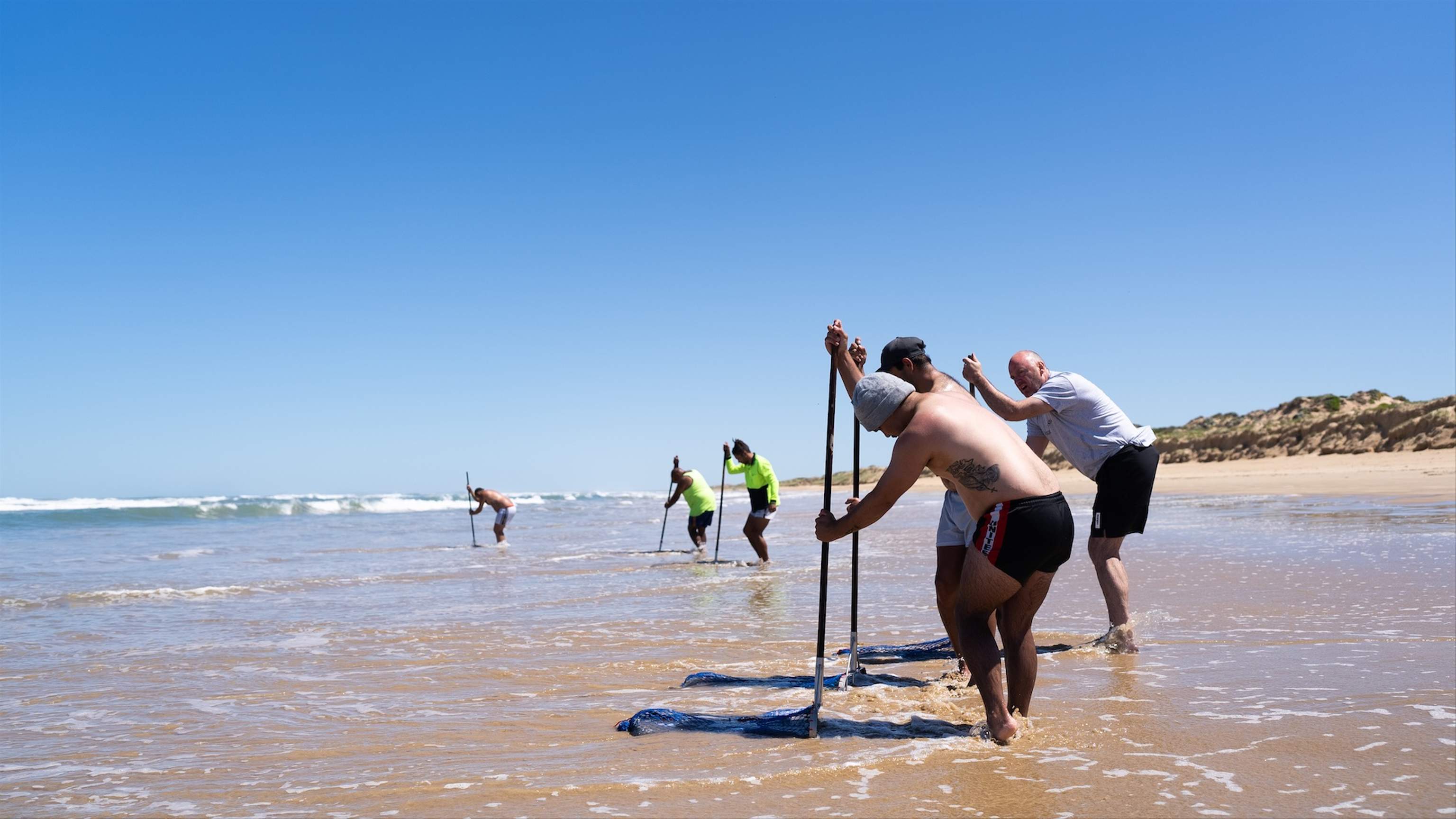Find out more about pipis, a small clam-like shellfish that has provided sustenance for thousands of years. Find out which pipis are sustainable and where to buy sustainable pipis.
What are pipis?
The pipi (Donax deltoides), also known as the Coorong or Goolwa cockle in South Australia, is a small clam-like bivalve (shellfish) that has provided communities with sustenance for thousands of years.
Whether steamed on the BBQ, smothered in butter and garlic, or tossed through spaghetti with chilli and lemon, savvy chefs and seafood lovers alike are hooked, and the humble pipi's popularity is growing exponentially.
Back on Country - the Kuti Co story
Building a sustainable future: Culture, environment and partnership with Goolwa PipiCo
For thousands of years, the Ngarrindjeri people have sustainably harvested kuti (pipis) along the Coorong coastline. Their traditional practice, known as the “pipi shuffle", where they use feet to gently disturb the sand and bring pipis to the surface, has supported both their cultural practices and the coastal ecosystem for generations.
However, by the late 20th century, commercial fishing had severely depleted pipi stocks. In 2008, management reforms from the South Australian government, alongside MSC certification helped to rebuild and establish the fishery as a reputable and sustainable pipi company.
A turning point came in 2016, when Derek Walker, a Ngarrindjeri man with both cultural and practical fishing knowledge, reconnected with Roger Edwards, the future chair of Goolwa PipiCo. Their shared vision led to discussions with the Ngarrindjeri Regional Authority, and by 2019, with backing from the Indigenous Land and Sea Corporation, Kuti Co was born.
A Ngarrindjeri owned enterprise, Kuti Co works in direct partnership with Goolwa PipiCo to embed Aboriginal leadership in the pipi industry.
A model for sustainable cultural and environmental practice
Kuti Co blends traditional and modern practices, employing Ngarrindjeri fishers and young community members while respecting cultural protocols. Kuti Co’s work is all about “opportunity to provide our people employment and training,” not just commercial success, said Walker in an interview with NITV.
This partnership between Kuti Co and Goolwa PipiCo stands as a unique example of how cultural renewal, sustainable seafood and ethical business go hand in hand.
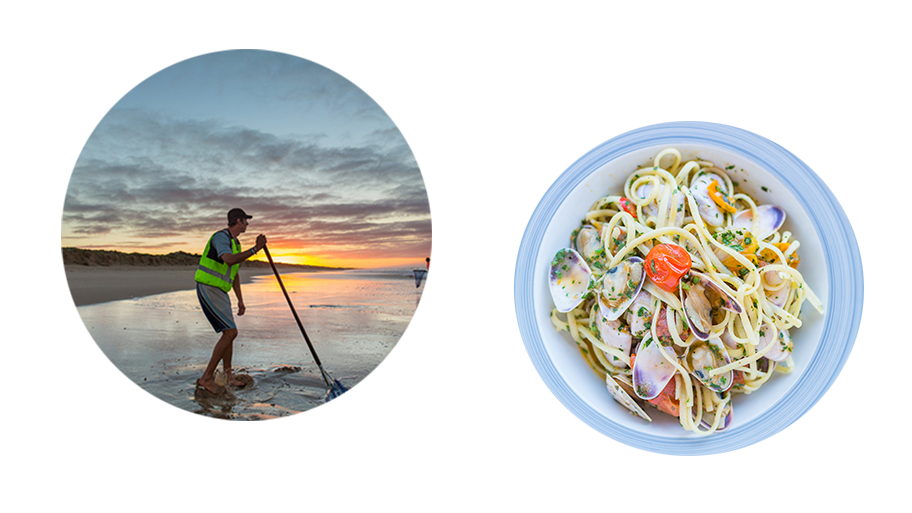
Are pipis sustainable?
Pipis carrying the MSC blue fish tick are certified sustainable. MSC labelled pipis come from a fishery that has been independently assessed to the MSC Fisheries Standard. Companies using the blue fish tick all along the supply chain have been assessed to ensure products can be traced back to an MSC certified fishery.
Where can I buy sustainable pipis?

Pipis with the blue fish tick are available through Goolwa Pipi Co. branded products. You can find them in Woolworths supermarkets and specialty fish shops, including The Fish Shoppe (VIC) and Harley & Johns Seafood (NSW).
Find out more about where to buy sustainable seafood.
Pipi recipes
Learn about pipi fishing
Located on the Coorong lagoon, Lake Alexandrina and Lake Albert near Adelaide, and the adjacent coastal waters of the Southern Ocean, Lakes and Coorong is unusual. Based in a national park and protected wetland that contains three distinct ecosystems, it was the first community fishery in Australia to achieve MSC certification back in 2008.Pipi or Coorong cockles are native to South Australia and are harvested by hand using rakes.
Harnessing community power
How this Australian fishery looks to centuries old indigenous practices to fight overfishing
Shuffling for Sustainability
Pitched in pre-dawn darkness, the Coorong Estuary is lit only by the glistening remnants of a supermoon. A crew of six men pile into the dual cab of a heavily modified Land Rover before it crawls onto an aluminium barge, custom built for the vehicle and its passengers.
Watch pipi fishing
One of the coolest seafood stories never told: sustainable pipis from Australia
Explore more sustainable fish to eat
Find more sustainable seafood species that are MSC certified in Australia and New Zealand.
Explore the sustainable seafood guide.

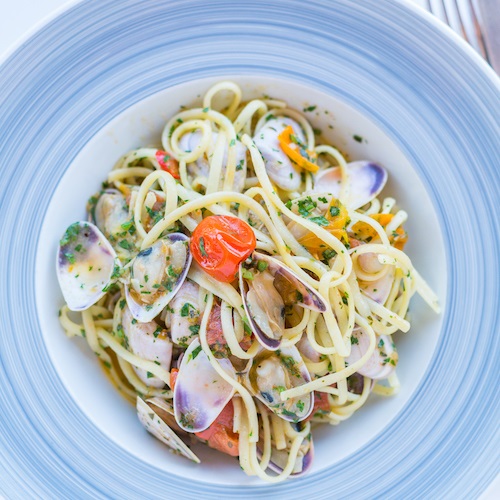
Sustainable seafood recipes
Chefs and seafood lovers from around the world share quick and tasty ways of cooking MSC certified seafood.
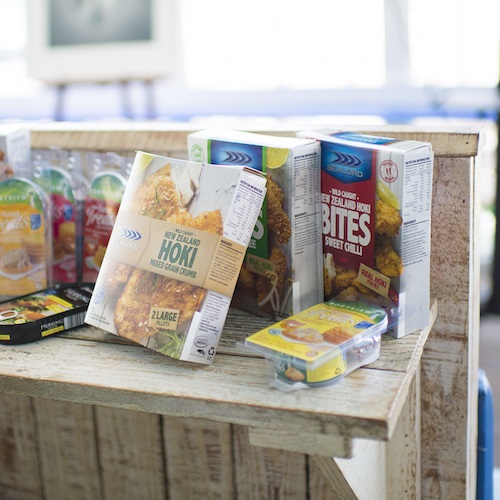
10 reasons to choose the blue fish tick
Choose seafood which helps to protect oceans, livelihoods and fish for the future.
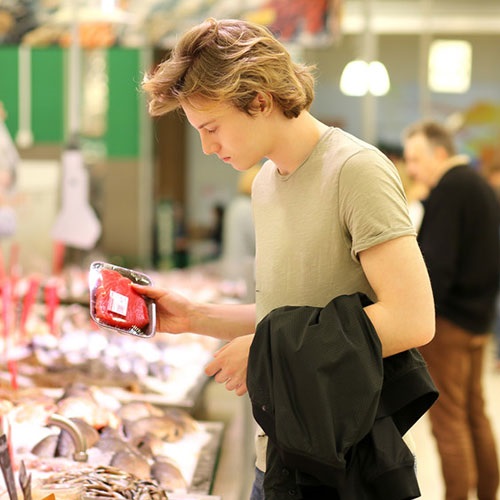
Buy sustainable seafood
Where to find the blue fish tick at supermarkets, fish shops and restaurants.

